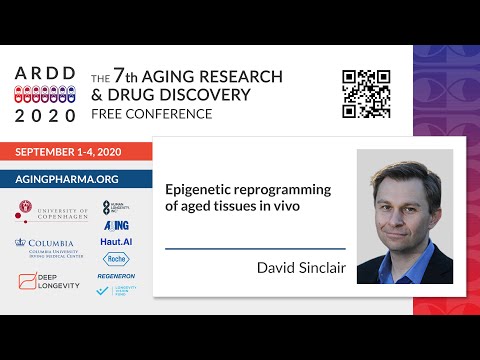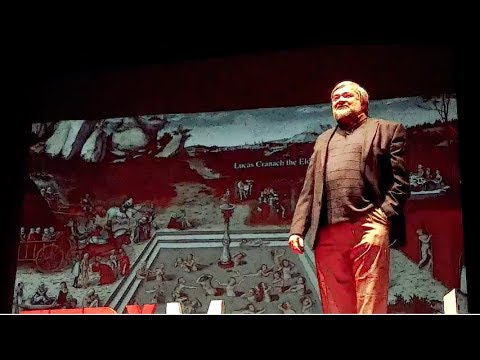Well, if the current cadre of WEF “elites” continue control of the world, that famine resistance may come in handy for many…
Agreed. I think 110 is overly optimistic even doing everything right and getting lucky in picking the right combination of interventions.
I’ve always viewed all lifestyle, supplement, drug intervention as a stop gap- something that will get us to a real breakthrough- likely gene editing, nanobot repair, using our own stem cells to grow replacement organs, etc. My thinking is, if we do get a breakthrough/s, I’m going to need to stay in the best shape possible to get to that point in time and to, also, still be “repairable”.
The one thing that nobody can count on being repaired is the brain. So anything protective of brain disease, injury, stroke is the most critical. This is why I’m switching to an alternating schedule of Rapamycin and Everolimus- with the idea that Everolimus crossing the blood brain barrier would make it superior.
As I’ve said before, there is no way pharma is going to help us- none of this is in their best interests. Our best hope is the arrogance and narcissism of our tech overlords who have 100’s of billions of dollars in wealth and a desire to not die…
So many walls have already been breached by modern medical technology, nutrition, etc… 80 years ago when you were born, doctors still made house calls with little black bags. Cancer was a death sentence. Medications were primitive at best. I think aspirin was a new revolutionary drug. When you started working, smoking and drinking were common in the workplace! If you go back to the 1860s, they just figured out sterilization and that bacteria existed. So, there were a lot of hurdles for people to jump to even make it to 90 just during your lifetime!
If you look at technology from when you were born, if you told them about cell phones, personal computers, or flying to the moon people would have thought you were crazy. People with psychiatric disorders were locked up in institutions instead of being treated. A lot of walls have been broken since you were born, my friend! They will continue to be broken as we move forward and I expect that wall of 120 will be broken too. Let’s do it together.
Do we know that everolimus crosses the BBB better than rapamycin?
“This will only be available to the very rich and produce a society of long-lived ruling classes alongside the short-lived workers. Even today the available healthspan solutions such as rapamycin are only available to people above the poverty level in free countries.”
I think I saw that movie.
And, what movie was that? I would watch it.
Unless you’re talking about the one we’re living.
There is a chance that this will happen during our lifetimes. David Sinclair’s lab is already able to age a mouse to a very old age and bring its age back. Something other scientists in the field describe as mind blowing. The lab that Bezos is pouring $1 billion into is researching the same things. They hired Shinya Yamanaka. So the future seems bright and moving quicker than expected.
Could you share the link to this paper?
Lol at MK taking this idea apart in today’s podcast
Do you have a time stamp?
(26mins) “This idea that reversing the epigenome is reversing aging is, at best an exaggeration, and at worst an outright lie. I mean it’s just not true… (29mins) Nobody has ever taken an old mouse and turned it into a young mouse”
Just Google epigenetic reprogramming. It’s not that hard. It’s the area that everyone is researching.
I guess the definition of “turned an old mouse into a young mouse” is difficult to pin down, but there’s definitely been work that gets close
I think the professor of pathology at University of Washington can’t be expected to know everything.
MK: (29mins) I would become really excited if somebody could do as well as Rapamycin in a mouse… Show me you can do that with reprogramming and I’ll be excited. Nobody has done that yet…
Dr. Andrei Gudkov is in complete agreement with desertshores. Talk below is informative, and spiced with dry humor. He calls 120 years the cliff.
Andrei V. Gudkov, PhD, DSci, is Professor of Oncology, Senior Vice President, Research Technology and Innovation, and Chair of the Department of Cell Stress Biology. He has been a member of the senior leadership team for the National Cancer Institute (NCI) Cancer Center Support Grant at Roswell Park Comprehensive Cancer Center since 2007. He is responsible for advancing the basic and translational research strengths of the Cell Stress Biology Program in studying genotoxic, metabolic and thermal stresses, mechanisms of inflammation and development of innovative anticancer approaches, including photodynamic therapy. As Senior Vice President, he assists the President & CEO in developing and implementing strategic plans for new scientific and technology development programs and enhances collaborations in research and development programs with regional and national academic centers and industry.
Before joining Roswell Park, Dr. Gudkov served as Chair of the Department of Molecular Genetics at Lerner Research Institute, Cleveland Clinic Foundation, and Professor of Biochemistry at Case Western Reserve University. He has authored or co-authored more than 230 scientific articles and holds more than 50 patents.
In some ways the cliff is encouraging. It suggests there is something mechanistic happening. And it’s always easier to intervene in a specific mechanism than just random accumulation of chance events.
It’s not that no organisms live longer than 120, just humans. So there’s nothing saying a living thing or an animal or even a mammal can’t live many hundreds of years.
Dr. Gudkov’s team is testing his hypothesis in retired sled dogs.
Comparative placebo-controlled clinical study of efficacy of reverse transcriptase inhibitor for health improvement and prevention of age-related diseases in aging sled dogs
We initiated a clinical trial where inhibition of retrobiome activity will be tested as an anti-aging and cancer-prevention approach in 8-11 year old “retired” sled dogs. We have recruited 102 dogs from kennels across North America and accommodated them at Cornell University Veterinary School.
Being old, I have seen a lot of aging theories come and go. Decades ago telomere length was thought to be the key. If we could just keep the telomere length from decreasing we could live for a very, long time.
Unfortunately “telomere shortening is not the only limiting factor of cellular life span.”
Apparently, telomere length and senescence are closely related.
Now Dr. Gudkov suggests a viral component that is killing us.
As a retired engineer, I have no expertise in the fields of biology, medicine, and related fields, but I can read and study the literature and perhaps reach what I think are logical conclusions.
A recent article does suggest that viruses and telomere length are closely related. “we found that the mouse cytomegalovirus (MCMV) carrying exogenous TERT or FST(MCMVTERTor MCMVFST) extended median lifespan by 41.4% and 32.5%, respectively”
To be honest I am not sure what all of the ramifications are of this article*
The age cliff remains baffling to me because it is almost like a timer that says, hey your time is up, we are no longer going to make the repairs needed to keep you alive.
I don’t think any of these theories address this fact. It really is like a switch that turns the light off at a certain time.
What, is the switch?
New intranasal and injectable gene therapy for healthy life extension
Open access full PDF available

